第50章 Chapter 6 Pecuniary Canons of Taste(15)
The ceremonial inferiority or uncleanness in consumable goods due to "commonness," or in other words to their slight cost of production, has been taken very seriously by many persons. The objection to machine products is often formulated as an objection to the commonness of such goods. What is common is within the (pecuniary) reach of many people. Its consumption is therefore not honorific, since it does not serve the purpose of a favorable invidious comparison with other consumers. Hence the consumption, or even the sight of such goods, is inseparable from an odious suggestion of the lower levels of human life, and one comes away from their contemplation with a pervading sense of meanness that is extremely distasteful and depressing to a person of sensibility. In persons whose tastes assert themselves imperiously, and who have not the gift, habit, or incentive to discriminate between the grounds of their various judgments of taste, the deliverances of the sense of the honorific coalesce with those of the sense of beauty and of the sense of serviceability -- in the manner already spoken of; the resulting composite valuation serves as a judgment of the object's beauty or its serviceability, according as the valuer's bias or interest inclines him to apprehend the object in the one or the other of these aspects. It follows not infrequently that the marks of cheapness or commonness are accepted as definitive marks of artistic unfitness, and a code or schedule of aesthetic proprieties on the one hand, and of aesthetic abominations On the other, is constructed on this basis for guidance in questions of taste.
As has already been pointed out, the cheap, and therefore indecorous, articles of daily consumption in modern industrial communities are commonly machine products; and the generic feature of the physiognomy of machine-made goods as compared with the hand-wrought article is their greater perfection in workmanship and greater accuracy in the detail execution of the design. Hence it comes about that the visible imperfections of the hand-wrought goods, being honorific, are accounted marks of superiority in point of beauty, Or serviceability, or both. Hence has arisen that exaltation of the defective, of which John Ruskin and William Morris were such eager spokesmen in their time; and on this ground their propaganda of crudity and wasted effort has been taken up and carried forward since their time. And hence also the propaganda for a return to handicraft and household industry. So much of the work and speculations of this group of men as fairly comes under the characterization here given would have been impossible at a time when the visibly more perfect goods were not the cheaper.
It is of course only as to the economic value of this school of aesthetic teaching that anything is intended to be said or can be said here. What is said is not to be taken in the sense of depreciation, but chiefly as a characterization of the tendency of this teaching in its effect on consumption and on the production of consumable goods.
The manner in which the bias of this growth of taste has worked itself out in production is perhaps most cogently exemplified in the book manufacture with which Morris busied himself during the later years of his life; but what holds true of the work of the Kelmscott Press in an eminent degree, holds true with but slightly abated force when applied to latter-day artistic book-making generally -- as to type, paper, illustration, binding materials, and binder's work. The claims to excellence put forward by the later products of the bookmaker's industry rest in some measure on the degree of its approximation to the crudities of the time when the work of book-making was a doubtful struggle with refractory materials carried on by means of insufficient appliances. These products, since they require hand labor, are more expensive; they are also less convenient for use than the books turned out with a view to serviceability alone; they therefore argue ability on the part of the purchaser to consume freely, as well as ability to waste time and effort.